18. Voyage (Scud, 2013) / Hong Kong
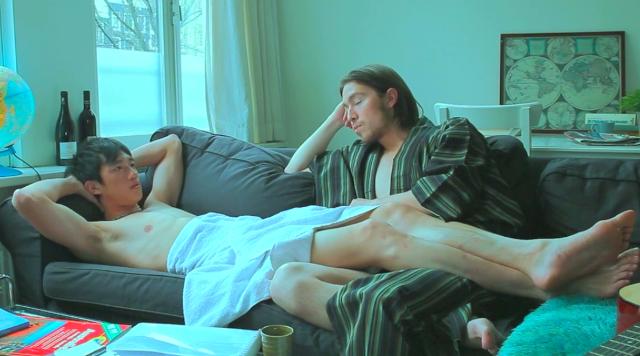
Intoxicated by melancholy, Eros and Tanatos throw lustful glances at each other… Depression, suicide, afterlife and the loss of a dear person make a connective tissue between several mini-stories by a young gay psychiatrist on his Southeast Asian odyssey.
Taking us back and forth through space and time – from Mao Zedong’s reeducation and the shamanistic rituals in the steppes of Inner Mongolia to a short-lived, tragic romance between a painter, Sebastian, and a columnist, Leni, in present-day Germany – the Hong Kong’s enfant terrible & queer auteur Scud doubts the great importance of love.
As in his previous (and weaker) works, he creates a film that is both provocative and uninhibited (which essentially means – the abundance of full-frontal nudity). Pushing dialogue aside and intertwining myths, dreams and (partly autobiographical) reality, Scud communicates with images and symbols. Behind the mask of saturated colors and scenic locations, he conceals a pessimistic worldview, breaking taboos and, eventually, the fourth wall.
Artistic, transgressive and, to a certain extent, cryptic and artificial, “Voyage” is a poison for the conservative-minded.
19. Amorous (Joanna Coates, 2014) / UK
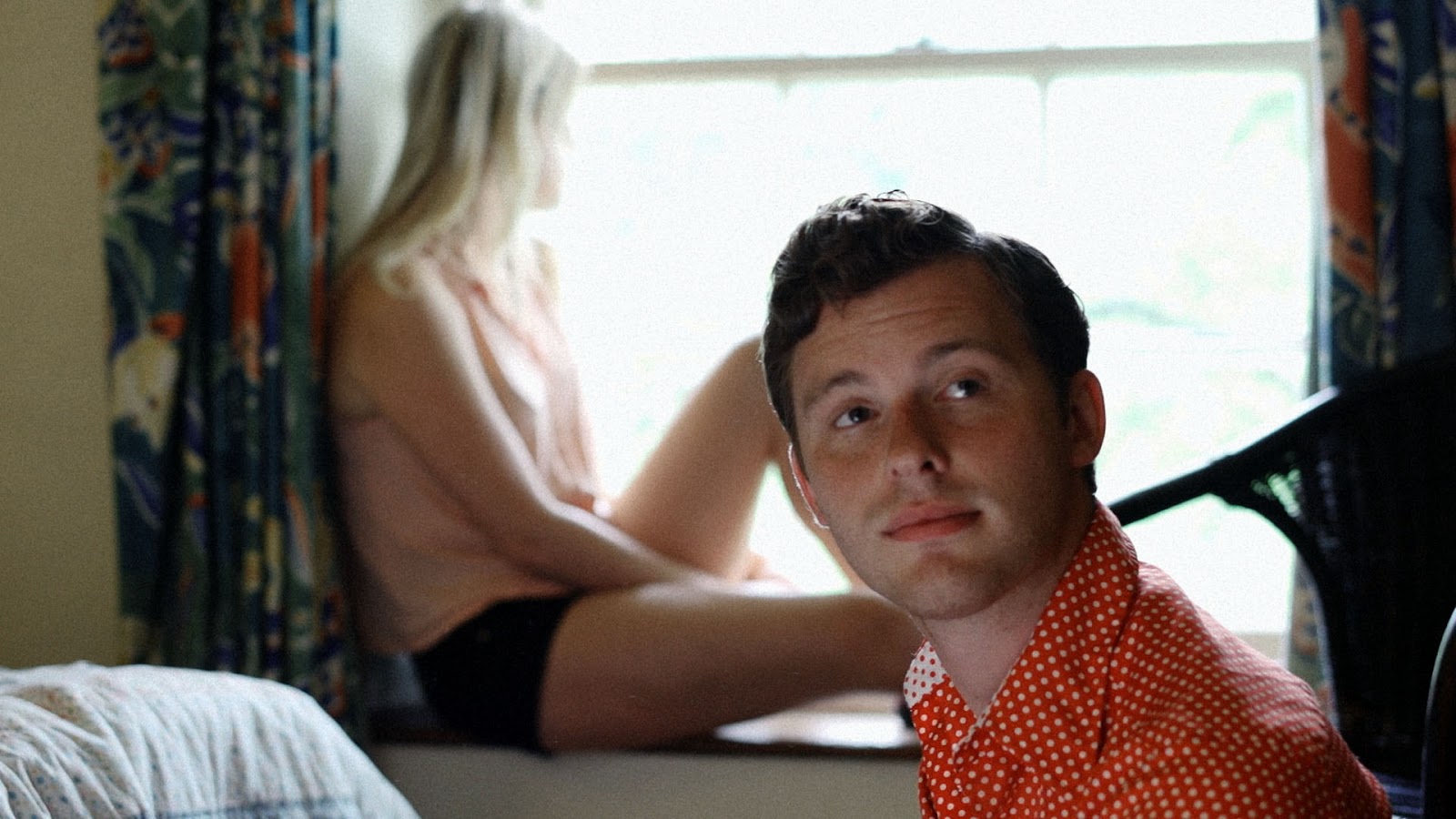
In a feature debut for Joanna Coates, four young people form a polyamorous commune in a remote cabin, somewhere in Craswall. Their micro-utopia is based on experimentation that is supposed to give them a boost in pursuit of happiness and help them on the path of self-discovery.
Whether the (lyrical) story is about a silent revolution or a naïve escapism, one thing is sure – the director attempts to prove right the theory that the individual is hindered by our society moral norms. So, unconstrained as her protagonists, she equalizes the self-exile from the civilization with the bottom of the stairs to personal heaven.
Her quartet of hyper-liberal pioneers is introduced via “art games” (which precede the night in a so-called marital room) and their reality could be described as a fragile autistic-romantic fantasy in which sex is given a spiritual dimension.
The cast’s performance is unaffected, bordering improvisation, whereby Ben Hecking frames their characters’ poeticized ennui with great precision, notwithstanding the budgetary limitations.
20. Stan Lee’s Mighty 7 (Lee Ningning, 2014) / USA
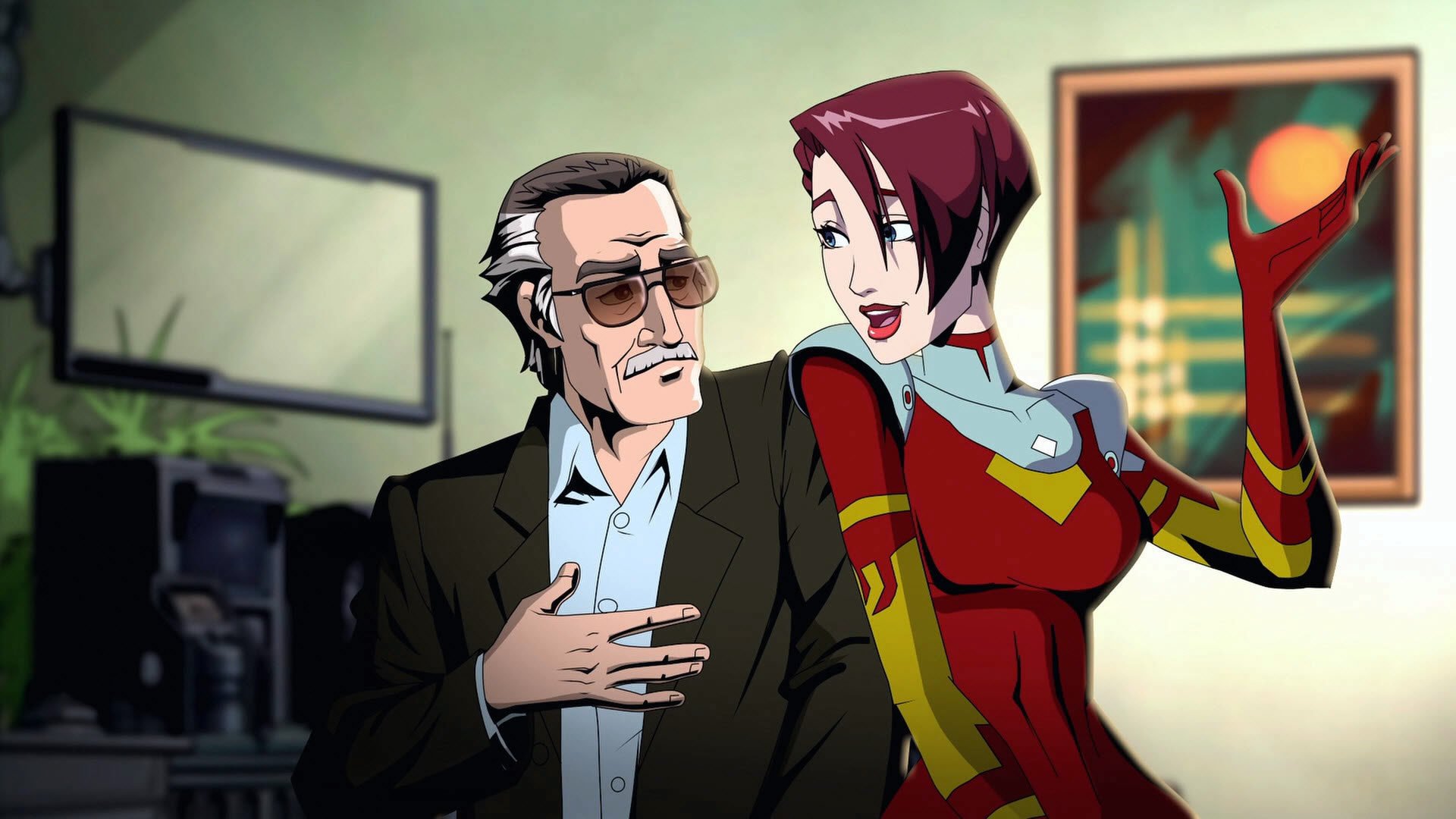
Based on the comic of the same name, “Stan Lee’s Mighty 7” could be labeled as a postmodern meta-fantasy. Conceived as a first part of a trilogy that hasn’t been finished so far, it puts the former Marvel chairman in the role of the gifted aliens mentor.
The film starts with a creative block, only to be developed as a part of “Reality Super Heroes” project by Stan Lee. From the spaceship that crash-lands on Earth in front of the gramp’s very eyes, emerge two “star” policemen and five felons who are later forced to cooperate in order to get back to wherever they come from.
Challenged by the unfamiliar surroundings, the titular (and at first, dysfunctional) septet must face the inhospitable men in black and the Taegon race of militant reptiles who – disguised as humans and planning to conquer our planet – work for mega-corporations. (Is that a smell of satire?)
As the animators of a Chinese studio Hong Ying achieve the attractive looks of a graphic novel turned Saturday morning cartoon, Lee and the first-timer Ningning create a brilliant self-referential parody rife with frenetic action and great humor.
21. Misunderstood (Asia Argento, 2014) / Italy | France
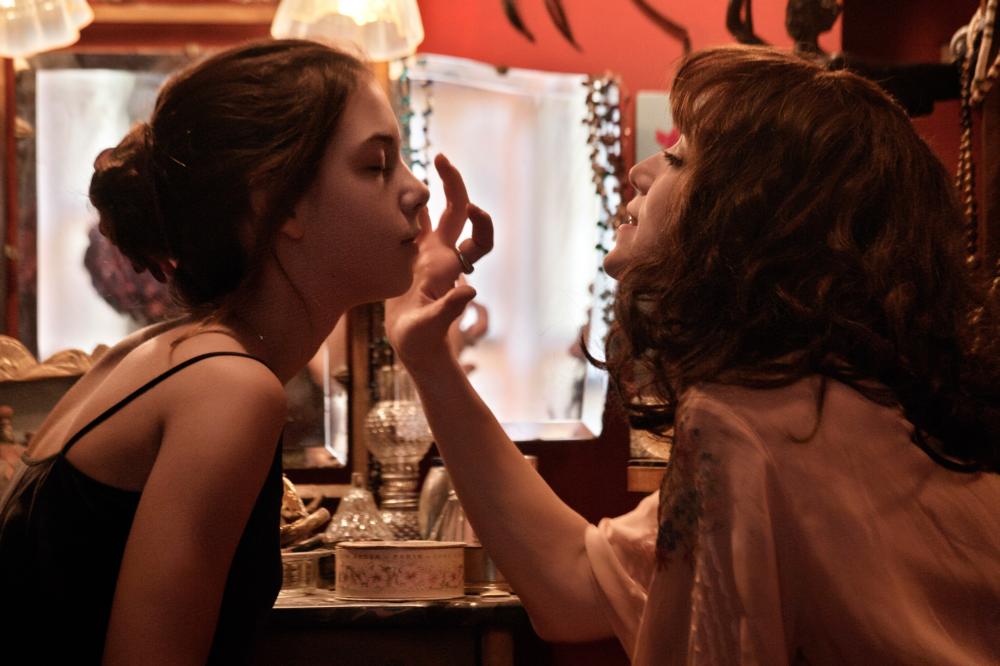
Exuding with amazing talent, 13-yo Giulia Salerno impresses as a bit younger Aria – a heroine of the third directorial effort by Asia Argento who injects many autobiographical elements into a not-quite-ordinary coming-of-age tale.
Charlotte Gainsbourg who stars as Aria’s egocentric pianist mother is almost a spitting image of Asia’s mother (the actress Daria Nicolodi), whereby pater familias – played by ex-model Gabriel Garko – is a superstitious actor, because it would be too obvious if he were a horror filmmaker. Not to mention the eye-poking similarities between the author’s and the protagonist’s names.
In settling the score with her parents, Argento applies something we could dub “stylish affectations” which perfectly fit the 80s setting. The whole flamboyant splendor of sets and costumes is captured in the beautiful cinematography by Terry Gilliam’s frequent collaborator Nicola Pecorini, as the sonic mélange of pop, funk and punk reflects the misunderstood girl’s tumultuous emotions.
In two words, mature and bittersweet.
22. The Bunker (Nikias Chryssos, 2015) / Germany
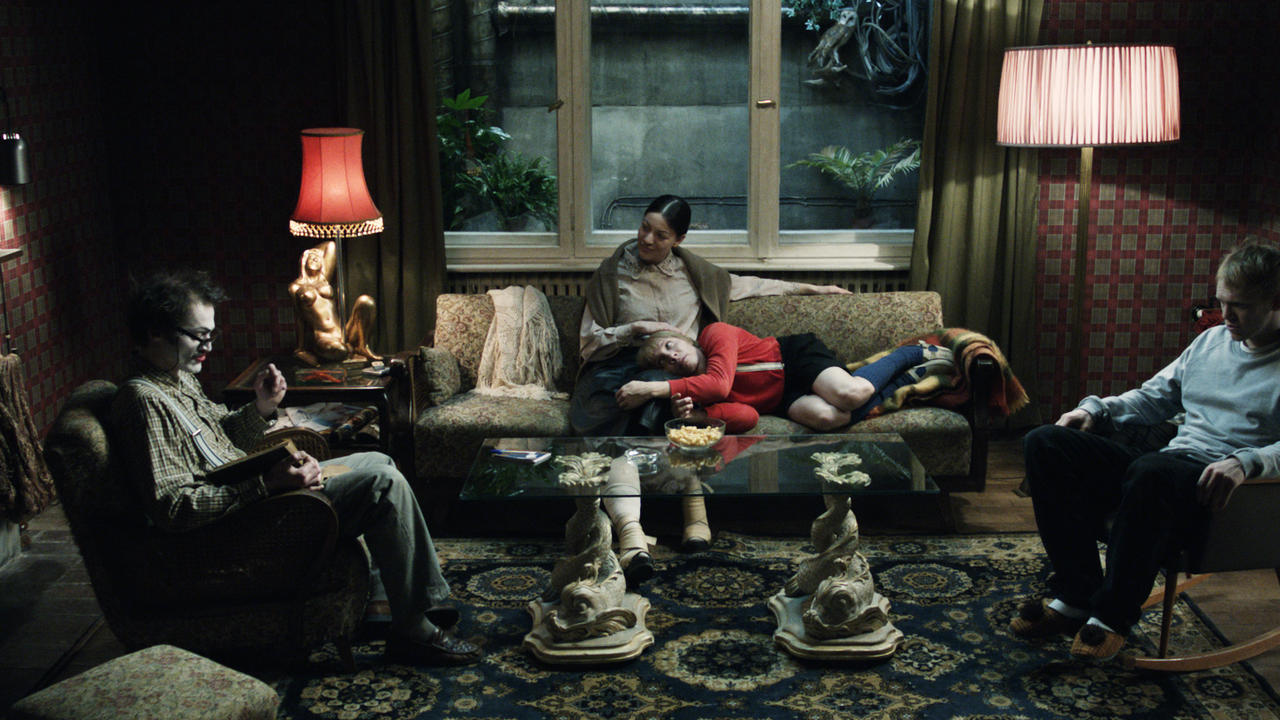
With disturbingly unparalleled childlike mannerisms, 1984-born Daniel Fripan portrays an 8-yo boy, Klaus, who’s being prepared by his parents (David Scheller as the Father and Oona von Maydell as the Mother) to enter the White House one day, even though he’s not the brightest bulb in the box.
Following the arrival of the Student (Pit Bukowski, excellent) to their cozy bunker in the middle of the forest, is “the little one’s” improvement, as well as the antics of the most nebulous kind…
And once the credits roll, you will probably wonder: “What the glorious hell did I just watch? Is it a Kafkaesque comedy? A German Weird Wave horror? The series of rug-pulling gimmicks masked as the partly campy and partly Lynchian Theater of the Absurd? An avant-garde fairy tale?
Whatever the right answer may be, “The Bunker (Der Bunker)” is a wonderfully peculiar piece of cinema which makes the most of the claustrophobic, windowless interiors in all their nice & creepy retro-chic glory. And it is as zany as the deified, demon-voiced entity (and family adviser) called Heinrich.
23. The Sky Trembles and the Earth Is Afraid and the Two Eyes Are Not Brothers (Ben Rivers, 2015) / UK
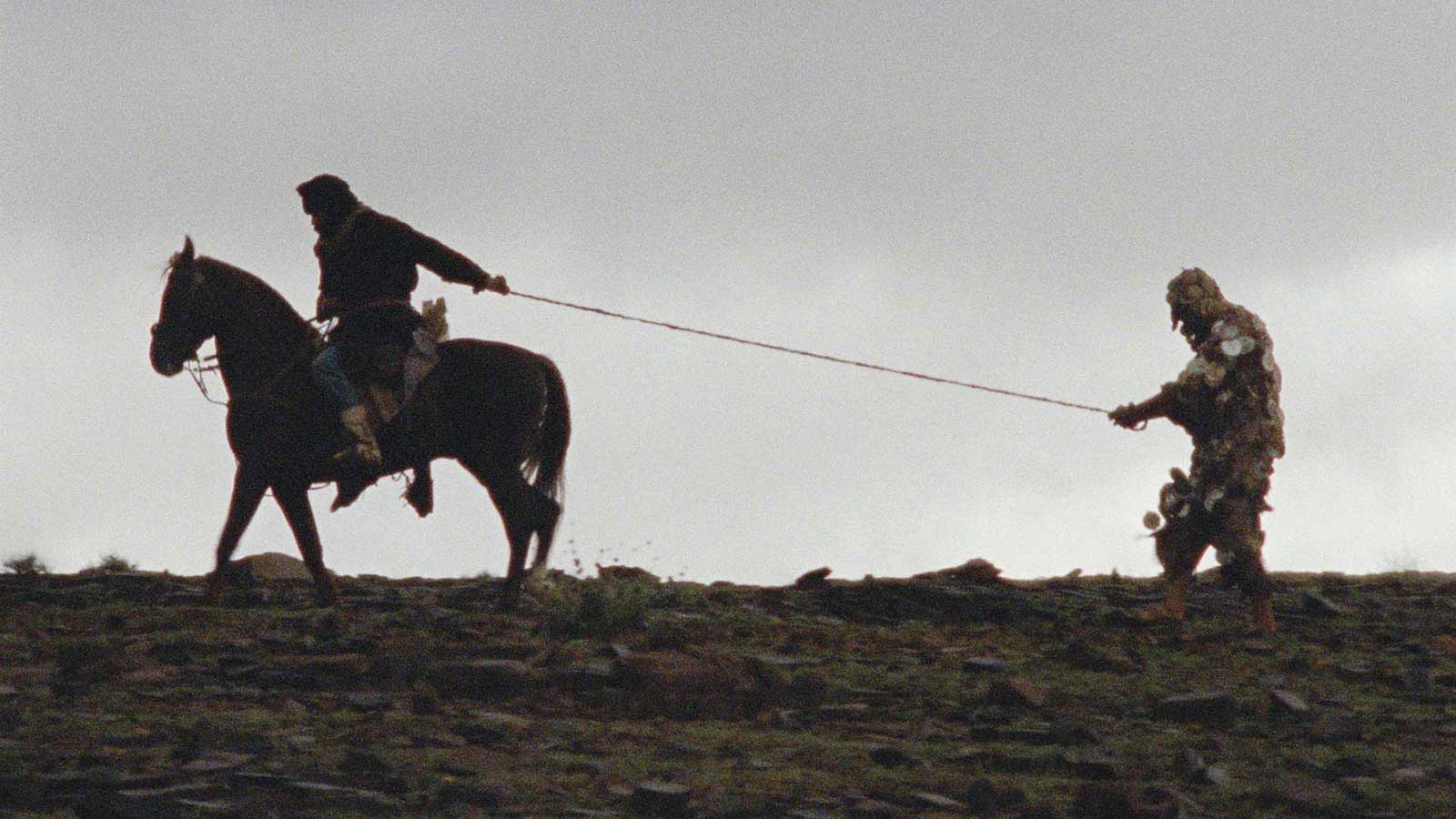
As one might assume from its title, Rivers’s latest feature film is unconventional, to say the least. Initially, it keeps track of a troubled film production in Morocco, whereas during the second half, its intriguing meta-narrative turns into the adaptation of Paul Bowles’s short story “A Distant Episode”.
A young director wanders off the set and gets attacked by Reguibat bandits who reduce him to a mute desert jester – both dehumanized and depersonalized – by beating him up, cutting out his tongue and forcing him to dance in a costume covered with tin can lids.
There’s a certain irony in this poor man’s misfortune which can be viewed as a belated act of revenge against colonialism or a metaphor for the Westerners’ fear or misappreciation of an exotic, introvert culture and vice-versa.
Also infused with the themes of coping with the language barrier, the pains of artistic creation and the quest for freedom along the thorny road, “The Sky…” is a meditative, deliberately paced docu-fiction whose 16mm cinematography complements the raw beauty of Moroccan vistas.
24. Under Electric Clouds (Aleksey German, 2015) / Russia | Ukraine | Poland
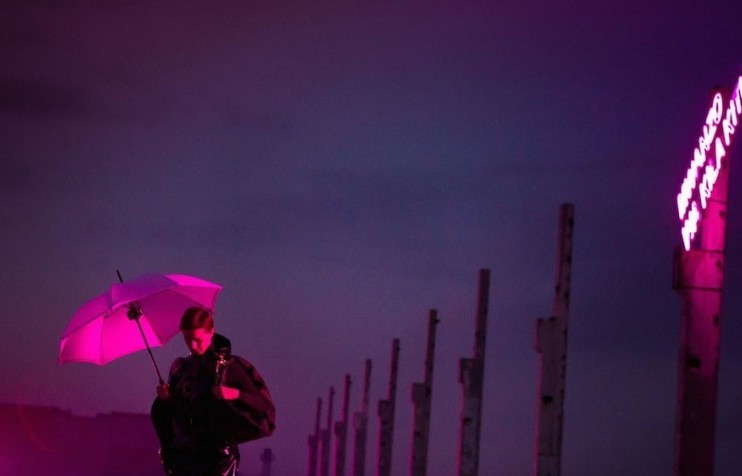
Set in the near future, 100 years after the Russian Revolution of 1917, “Under Electric Clouds (Pod elektricheskimi oblakami)” takes an uncompromising look at the state on the verge of another war.
An unfinished skyscraper skeleton, barely visible through the dense fog, stands tall as a symbol of pre-apocalyptic Russia, affecting miserable lives of several diversified characters who appear as disoriented ghosts stuck in a bleak limbo.
Their often cryptic and absurd dialogues, occasionally with deceased friends and acquaintances, are the paragons of the tale’s impenetrability, whereby the film’s leaden, stifling atmosphere owes a lot to the derelict locations captured in tightly framed long takes.
Showing the same sensibility as his late father of “Hard to Be a God” fame, Aleksey German Jr. indulges in philosophical meanderings through the torn soul’s labyrinth which stretches under the holographic, sky-projected ads promising false hope.
25. John From (João Nicolau, 2016) / Portugal | France
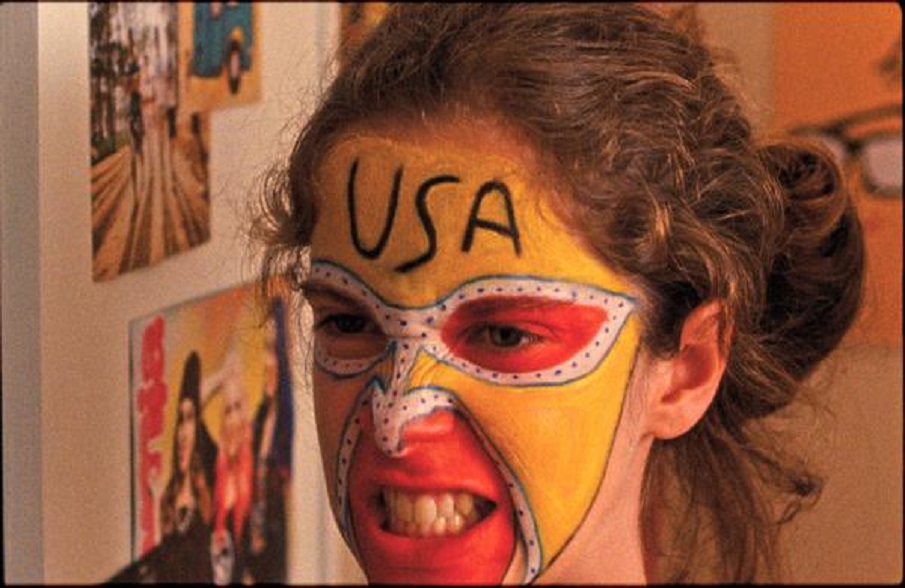
Set to the rhythm of a bored young heart, “John From” focuses on a fifteen year old girl, Rita (Julia Palha in her first big screen role), who develops a crush on a new neighbor – a much older pro-photographer, Filipe (Filipe Vargas). As her light obsession grows, she and the very film slip into the world of unrestrained imagination.
Speaking of innocence not entirely lost, João Nicolau paints an idiosyncratic portrait of maturing and sexual awakening. His quirky, candid and charming romantic drama gets progressively weirder, eventually morphing into a surreal and exotic fantasy.
During all of its running time, “John From” brims with colors which reflect the joy of youth and summer shared by Rita and her “partner in crime” Sara (Clara Riedenstein, another debutant). The great chemistry between the two leading actresses, complemented by an infectious deadpan energy of Nicolau’s direction, makes for a pleasant viewing experience.
Author Bio: Nikola Gocić is a graduate engineer of architecture, film blogger and underground comic artist from the city which the Romans called Naissus. He has a sweet tooth for Kon’s Paprika, while his favorite films include many Snow White adaptations, the most of Lynch’s oeuvre, and Oshii’s magnum opus Angel’s Egg.